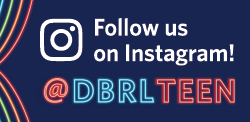
“There is a crack, a crack in everything,
That’s how the light gets in”
-Leonard Cohen, “Anthem”
This quote from a song by one of Lana Del Rey’s favorite singer/songwriters forms a kind of loose manifesto for her new album, “Did You Know That There’s a Tunnel Under Ocean Blvd” – the more cracks and flaws we have, and the more hardships we endure, the more compassionate, wise and humane we are capable of becoming. On her ninth studio album, the artist formerly known as Lizzy Grant is so cracked-open and vulnerable that it’s almost painful to listen to at times. What distinguishes “Ocean Blvd” from the rest of Lana’s catalog is the diaristic immediacy of the songs. Unlike her earlier work, Del Rey said in a recent interview with Billboard Magazine, “there’s no world-building…This music is about thought processing…Now, I just sing exactly what I’m thinking.” And what she’s thinking about on this album, beyond the perennial subject of romantic love, is family, faith, mortality, her troubled past and her uncertain future.
The album’s first track, “The Grants,” opens with the voices of three of Whitney Houston’s backup singers and revolves around the idea that when you leave this earth, “all you take is your memories,” which culminates with Lana listing some of her most cherished memories – the birth of her sister’s first child and her grandmother’s last smile. This gospel-inflected song is one of the most moving and beautiful she’s ever made, and sets the tone for the soulful, dynamic vocal performances on the rest of the album.
Among the other highlights are fan-favorite “A&W,” which morphs from dark, confessional folk into experimental electronic hip-hop over the course of its seven-minute runtime, the harrowing “Fingertips,” which details, in a stream-of-consciousness style, her fraught relationship with her mother and her mental health, the delicately dreamy “Paris, Texas” – a song about knowing when it’s time to move on – and “Grandfather Please Stand on the Shoulders of My Father While He’s Deep-Sea Fishing,” a gorgeous ballad with an unwieldy title which, in true Lana fashion, hilariously features the lines, “I’m folk, I’m jazz, I’m blue, I’m green/Regrettably also a white woman.” It’s touches like this, or the badly mixed trap beat that enters “Fishtail” halfway through, or the snippets of an iPhone recording of her megachurch pastor’s sermon in “Judah Smith Interlude” that add a layer of messiness and complexity to her music, and make this album more of a strange journey through her subconscious than just a collection of songs.
Back in 2012, when I saw Lana Del Rey make her widely ridiculed debut on Saturday Night Live, I never thought she would grow into the cultural icon she is today, or that she would eventually make one of the greatest and most critically lauded albums of the decade, and I certainly never expected to become a Lana fan myself, singing along, and even crying, to the songs on this new album, listening to it late at night on the day it dropped. But she’s managed, over the years, to do what many of the greatest singer-songwriters, Neil Young and Joni Mitchell among them, have done – burrowing deeper into herself, revealing new sides to her personality, and allowing her music to grow and mature along with her, all while staying completely true to the idiosyncrasies and contradictions that make her wholly unique. This, I think, will ensure that people will still be listening to her a decade from now.

